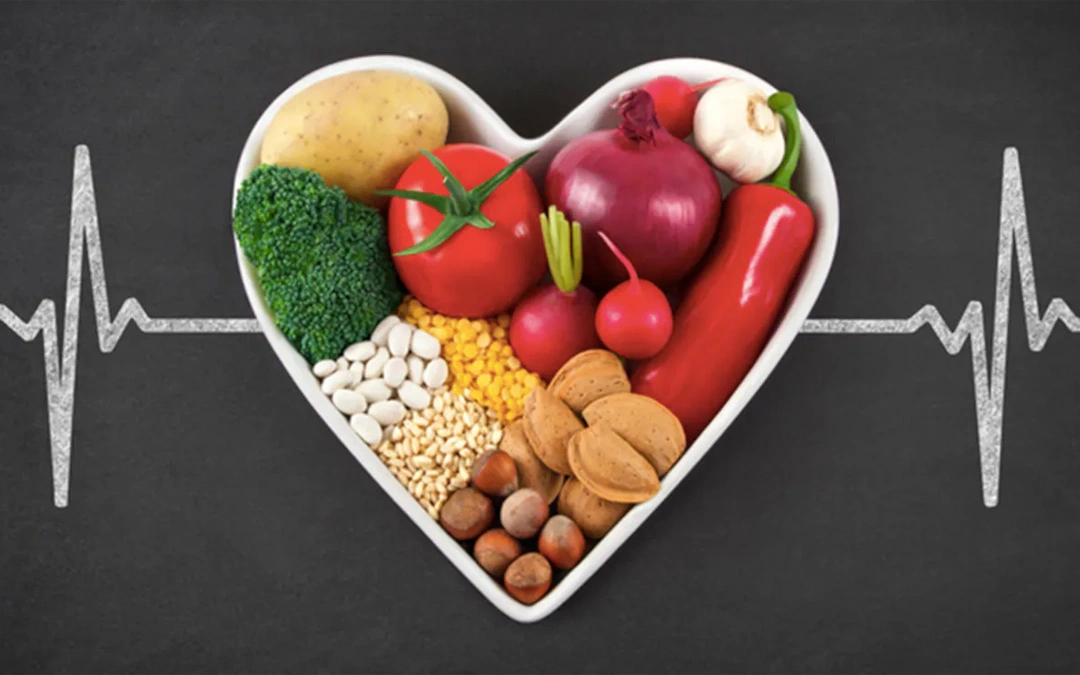What we eat every day plays a critical role in our heart health. While we may think we’re making smart food choices, certain hidden habits can quietly increase the risk of heart disease, high cholesterol, and even stroke. Many of these risks come without warning signs, making it important to understand the subtle ways our diet affects the heart.
Recent research highlights how our gut health is closely linked to cardiovascular health. Some bacteria in the gut can turn certain foods into TMAO (trimethylamine N-oxide), a compound that has been strongly associated with clogged arteries and heart attacks. An unhealthy gut can also lead to inflammation, elevated blood pressure, and imbalanced cholesterol levels—factors that quietly increase heart disease risk.
To help reduce these risks, here are five science-backed habits that can improve both gut and heart health:
Eat More Fibre
Fibre-rich foods like fruits, vegetables, whole grains, and legumes feed the good bacteria in the gut. These bacteria help reduce inflammation in the body, support digestion, and maintain healthy cholesterol levels.
Cut Back on Processed Foods
Ultra-processed snacks and ready-to-eat meals can disturb the balance of gut bacteria. They often contain high levels of sugar, salt, and unhealthy fats, all of which contribute to heart disease and metabolic issues.
Include Fermented Foods
Probiotic-rich foods such as yoghurt, kefir, kimchi, and sauerkraut help maintain a diverse and healthy gut microbiome. A well-balanced gut is essential for reducing inflammation and supporting overall heart health.
Kefir → Fermented milk drink (similar to a drinkable yoghurt)
Kimchi → Spicy fermented cabbage (a traditional Korean side dish)
Sauerkraut → Fermented shredded cabbage (common in German cuisine)
What is Kefir?
Kefir is very similar to chaach (buttermilk) in terms of texture and usage, though kefir is made by fermenting milk with specific kefir grains, giving it more probiotic content than traditional chaach. Despite the name, kefir grains are not actual grains or seeds. They are soft, jelly-like clumps made up of good bacteria and yeast. These grains help ferment the milk and turn it into kefir.
Think of kefir grains like curd culture (jaaman) — you need an existing batch to make more. You can’t create them from scratch; they grow naturally and are passed from person to person or sold in health stores.
Once you have them, you can reuse them endlessly to make fresh kefir at home.
Limit Red Meat and Eggs
Excess consumption of red meat and eggs may increase levels of TMAO, the harmful compound produced in the gut. High TMAO levels have been linked to artery blockages and a greater risk of cardiovascular disease.
Stay Hydrated and Manage Stress
Drinking enough water supports digestion and helps flush toxins from the body. On the other hand, chronic stress can harm gut health and lead to inflammation—an underlying cause of many heart problems.
Small changes in daily eating habits can make a big difference over time. By prioritizing gut-friendly and heart-healthy foods, and managing lifestyle factors like stress and hydration, it’s possible to significantly lower the risk of heart attack—often without waiting for warning signs.
Disclaimer: This article is for informational purposes only and is not a substitute for professional medical advice. Always consult a healthcare provider for guidance specific to your health needs.
Discover more empowering stories and insightful content like this on YOUxTalks, your go-to destination for inspiration and knowledge.
Follow YOUxTalks on Instagram: https://www.instagram.com/youxtalks











